
Different types of slabs in construction Its uses Pros & Con Civil engineering design
1. Flat Slab A flat slab doesn't possess beams, & is supported by concrete columns or caps itself, & hence it is additionally known as a beam -less slab. Loads are directly conveyed to columns. The flat slab is effortless to develop & requires smaller formwork. The thickness of the Flat Slab = is 8″ or 0.2 m. Where Flat Slabs are Used?
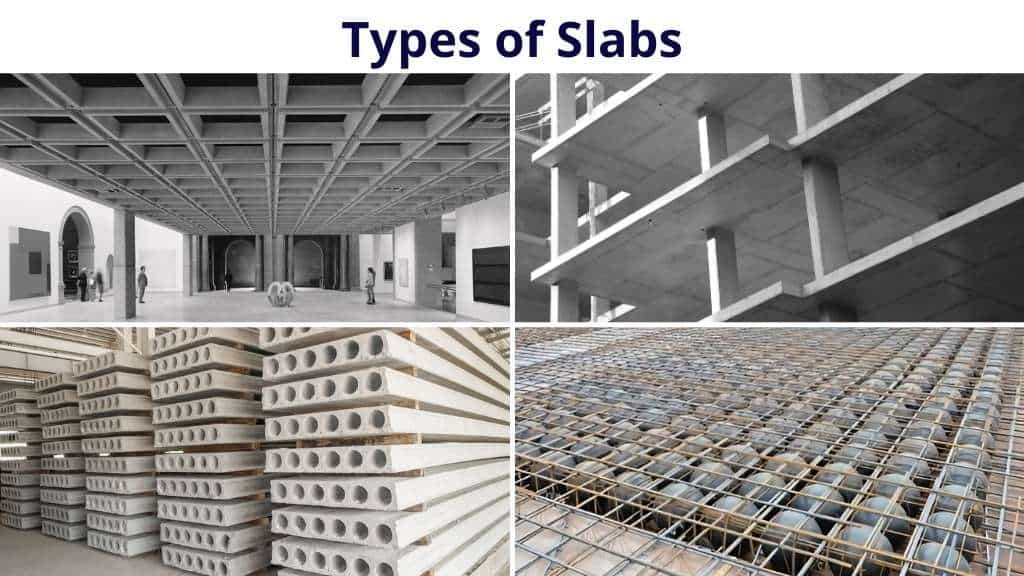
20 Different Types Of Slabs In Construction
There are 20 different types of slabs in practice which are discussed in this article. The methods for slab construction vary from each other. Based on the support condition, a slab can be a simply supported slab, cantilever slab or a continuous slab. A slab can be a floor slab or a roof slab.

20 Different Types Of Slabs In Construction
Typically they consist of pre-tensioned, post-tensioned, or hollow core slabs. Cantilever slabs are designed to be supported at one end. The main reinforcement is in the span that protrudes to the outside. Grads slabs are slabs cast directly on the surface of the soil. Generally they are used for basement flooring.
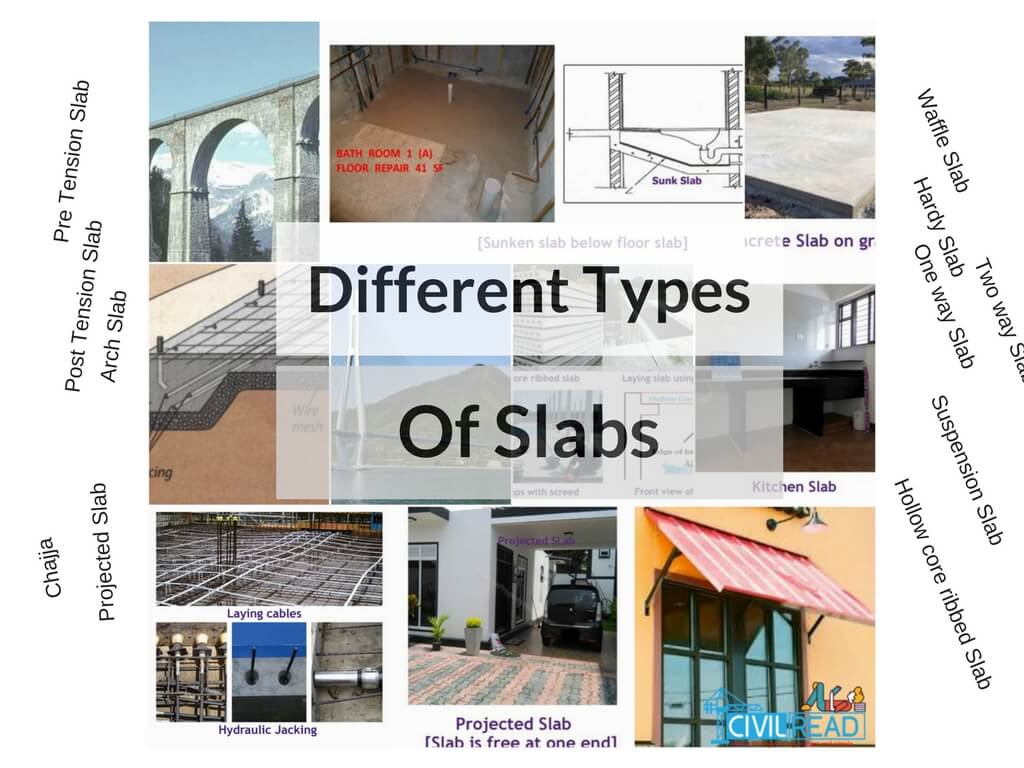
16 Different types of slabs in construction Where to use?
Different Types of concrete slabs in construction:- There are 16 different types of Slabs in Construction. Some of them are outdated and many of them are frequently used everywhere. In this article, ill give a detailed explanation of each slab and where to use a particular slab. Below are the types of concrete slabs.

Different types of slabs in construction Its uses Pros & Cons lceted LCETED INSTITUTE FOR
In construction, a slab refers to a flat, horizontal structural element that spans between walls, beams, or columns, providing a solid and level surface for the building's occupants or for further construction activities. Slabs are commonly used on various levels of a building, including the ground floor, upper floors, and roof.

Building Anatomy concrete slab types Construction English
Buyers' Guide When it comes to construction, slabs play a crucial role in providing a solid and stable foundation for buildings. In other words, buildings are incomplete without slabs. In this article, we will explore 25 different types of slabs used in construction and delve into their advantages and disadvantages. Contents hide 1.

Different types of slabs in construction Its uses Pros & Cons lceted LCETED INSTITUTE FOR
What are the 16 different types of slabs in construction? Bridges, roofs, foundations and driveways all rely on durable concrete for a firm base and dependable structure. Find out how to compare the 16 common concrete slab types today before planning a construction project.
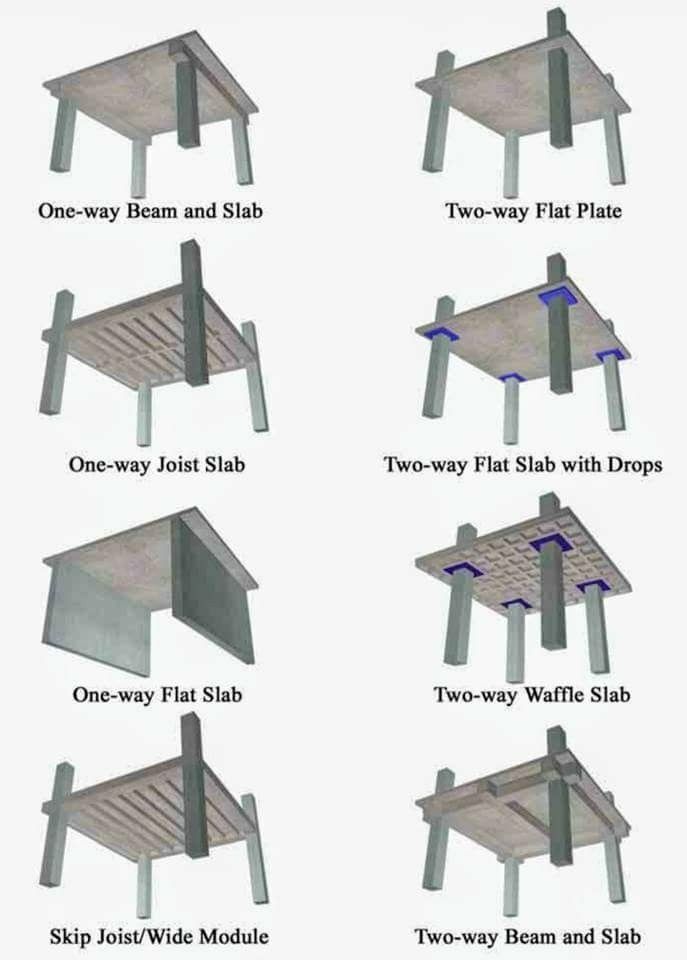
Types of Slabs in Construction
Concrete slabs, therefore, are further classified into one-way joist slab, flat slab, flat plate, waffle slab, hollow core slab, precast slab, slabs on grade, hardy slab, and composite slab. 1. One-Way Slabs on Beams

10 Different types of slabs in construction Where to use? YouTube
More than 20 different slabs have been practiced in the construction zones. The load-bearing structures help transfer the load from slabs to the load-bearing walls. Moreover, the thickness of the slabs may vary from 100mm-500mm. We will discuss all the types of slabs that are widely used in construction in the next section. Keep on reading!
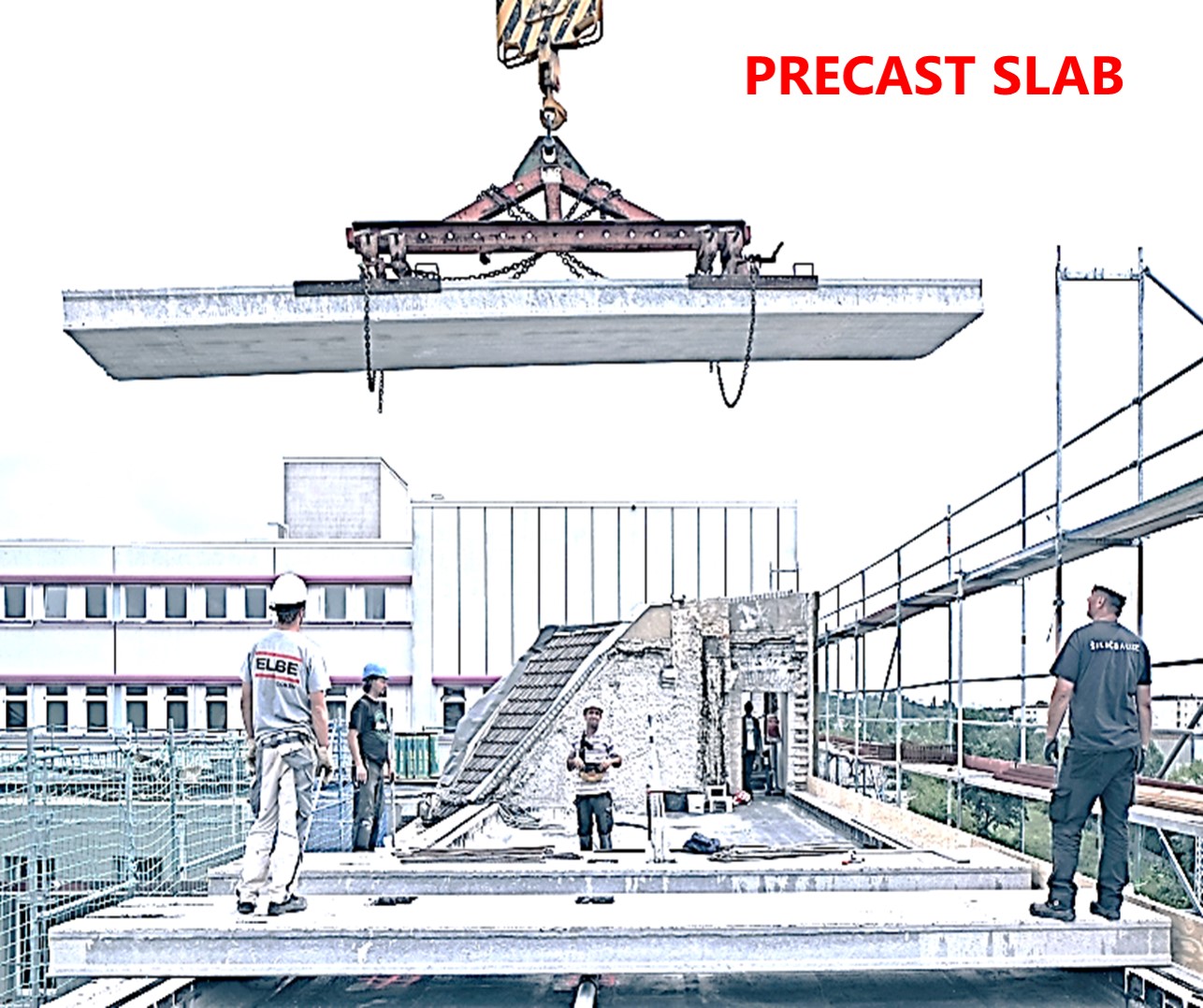
Different types of slabs in construction Its uses Pros & Cons lceted LCETED INSTITUTE FOR
Following are the types of flab slab construction: Simple flat slab Flat slab with drop panels Flat slab with column heads Flat slab with both drop panels and column heads Uses of Column Heads It increase shear strength of slab It reduce the moment in the slab by reducing the clear or effective span Uses of Drop Panels

Different types of slabs in construction Its uses Pros & Cons lceted LCETED INSTITUTE FOR
Hollow Core Slab. Hollow-core slabs are also similar slab types to bubble deck slabs. Instead of the bubbles, there will be a continuous hole in the slab section. These types of slabs are constructed in the bridge deck construction. Removable flexible material or lost formwork will be used for the construction.
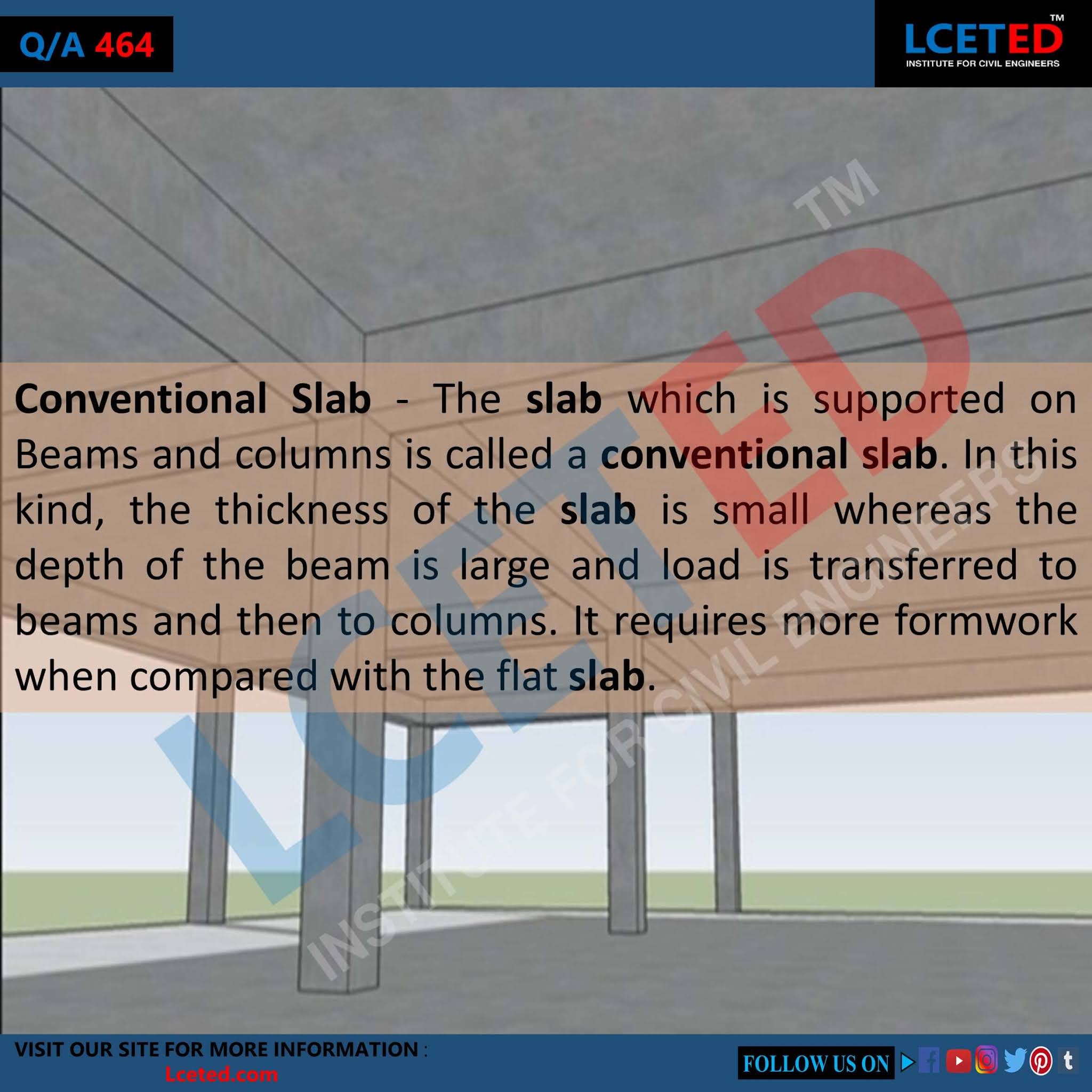
Different types of slabs in construction Its uses Pros & Cons lceted LCETED INSTITUTE FOR
Different types of concrete slabs in Construction: 1.Flat slab: This slab is a reinforced concrete slab supported directly by a concrete column or caps. Flat slab does not have beams so they are also known as beam-less slabs which are supported on the column and load is transferred directly to the column.

What Is Slab Construction Types of Slab Design What Is Floor Slab Types of Floor Slab
A Reinforced Concrete Slab is the one of the most important component in a building. It is a structural element of modern buildings. Slabs are supported on Columns and Beams. RCC Slabs whose thickness ranges from 10 to 50 centimetres are most often used for the construction of floors and ceilings. Thin concrete slabs are

What is a slab? Function Types of Concrete slab
19 Different types of slabs in construction are as follows. 1. Flat Slab Flat slab doesn't possess beams, & are supported by concrete columns or caps itself, & hence it is additionally known as a beam-less slab. Loads are directly conveyed to columns. The flat slab is effortless to develop & requires smaller formwork.

Different types of slabs in construction Its uses Pros & Cons lceted LCETED INSTITUTE FOR
Email This Post Slabs create flat, usually horizontal surfaces in building floors, roofs, bridges, and other constructions. Walls can support the slab, and reinforced concrete beams are normally cast monolithically with the slab, structural steel beams, columns, or the earth itself. Fig 1: Flat Slab Courtesy: civildigital.com

Types of Slab YouTube
5 Types of Slabs for Construction: Process and Characteristics TLDR The choice of slab for construction projects depends on various factors such as budget, materials, and project requirements, and different types of slabs offer different benefits in terms of speed, strength, and efficiency. Summarize any video by yourself Install on Chrome